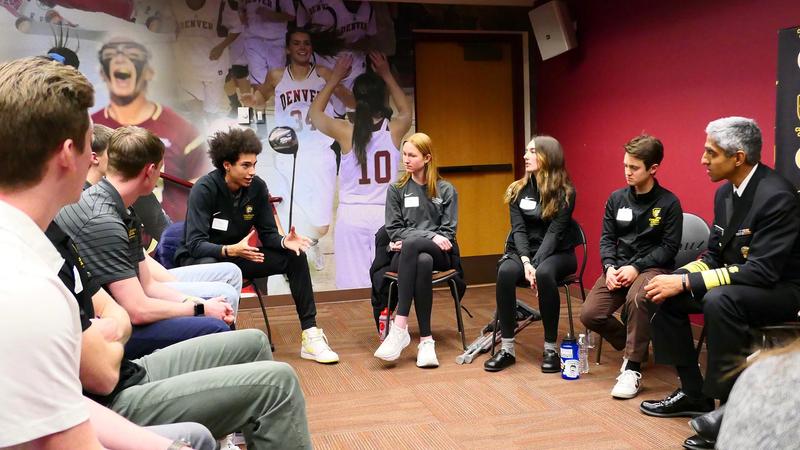Student-Athlete Mental Health: U.S. Surgeon General Vivek Murthy Joins NCAA Advisory Group to Promote Treatment and Awareness
Introduction
With mental health becoming more recognized as an integral part of a healthy lifestyle, the U.S. Surgeon General, Dr. Vivek Murthy, has taken the lead in advocating for the improved wellbeing of student-athletes. This week, Dr. Murthy addressed the National Collegiate Athletic Association’s (NCAA) Mental Health Advisory Group, emphasizing the importance of openly discussing, identifying, and treating issues related to mental health.
The Impacts of Mental Health on Student-Athletes
Student-athletes are not immune to the issues related to mental health and wellness that many people face. However, competing on high-level athletic teams can amplify the pressures and stress of a physical and academic workload that can contribute to many students struggling with a wide range of mental health issues. Lack of psychological support can have an adverse effect on an athlete’s performance and ability to continue competing, as well as other aspects of life such as relationships, work, and academics.
What the U.S. Surgeon General is Doing
During Thursday’s meeting with the NCAA’s Mental Health Advisory Group, Dr. Murthy expressed his support for the organization’s initiatives to increase awareness and initiate dialogues about mental health issues, as well as providing resources and programs to help athletes suffering from mental health issues. He also discussed the importance of thorough evaluation of a student-athlete’s mental health before, during, and after competing in college sports, and the importance of providing resources to both athletes and their families.
Conclusion
Dr. Murthy’s participation in the NCAA Mental Health Advisory Group underscores the significance of considering, recognizing and providing support for mental health in regards to student-athletes. Open discussion on this often taboo topic is critical in order to facilitate early identification and treatment of mental health issues, reduce stigma, and help athletes continue to reach their full potential.

